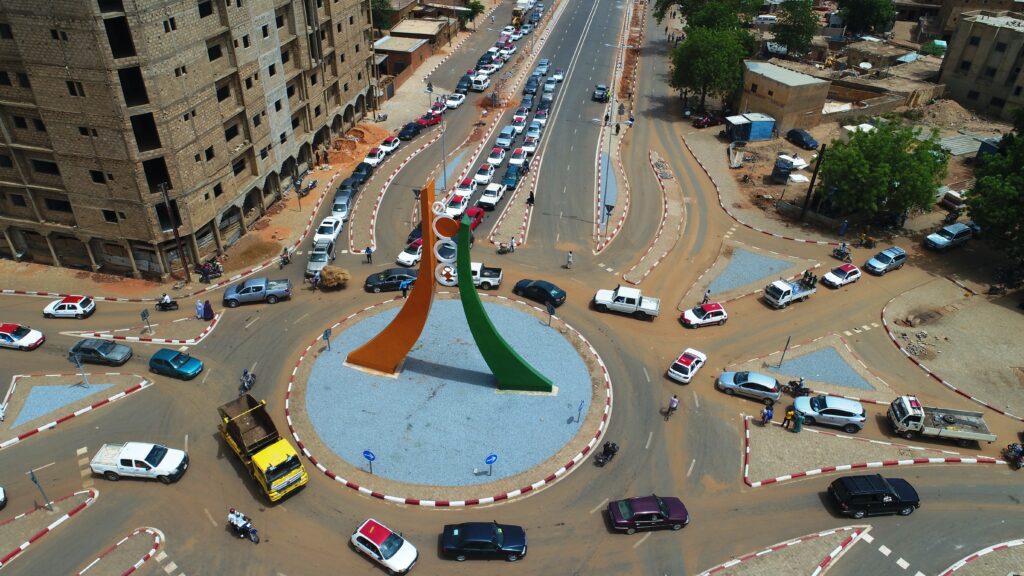Will informal public transport owners be able to pay their monthly tax using mobile money?
Local authority: City of Niamey
Country: Niger
In Niamey, the management of small-scale public transport, like taxis or shared cars, faces many challenges, such as overall road safety, theft, and kidnappings. This is compounded by the absence of a reliable database for the vehicle fleet. In addition, informal public transport owners face long queues to pay their monthly taxes, which leads to a loss of efficiency and city income.
A part of its Local Action Plan, The City of Niamey therefore wanted to overcome these challenges by setting up a “digital mobility observatory”, a team that would improve the issuing, collection and monitoring of administrative processes.
The first role given to the observatory was to ease the process of paying and collecting tax payments. An experiment was therefore set up to test a mobile tax payment system with a small number of taxi owners, to determine whether they would be willing and able to carry out a monthly payment using mobile money. Another goal of experimentation was to learn whether the local authority could effectively and efficiently receive and manage these incoming taxes.
ASSUMPTION: Taxi owners will be willing and able to make monthly tax payments via mobile money.
How the Local Action Group tested it
• Conducted a diagnostic study of the IT systems in the Niamey town hall to understand the needs of users and compatibility requirements
• Developed a partnership with a mobile money operator (AL IZZA) to test the viability of conducting mobile payments
• Developed a prototype of the tax payment platform, and conducted a payment simulation with 120 randomly selected taxi drivers to test it.
What they learned
90% of the participants made successful payment through AL IZZA Transfert. A key factor in this success was the fact the number of participants having a mobile money account was far higher than expected, at more than 90%. The local team had positive feedback from transport unions, who saw clear potential benefits for taxi drivers in the ability to pay either through mobile money or at Al Izza counters.
The local authority is able to absorb and manage tax payments. The local authority was able to ask for tax disbursement and reports of payments on an ad-hoc basis. The next step is for them to design and test a process for these reports and disbursements to be made automatically.
Choosing the right partner is key to success. The local authority had initially chosen another mobile money operator. However, in conversation with transport unions and taxi drivers, they learnt that a different operator was more commonly used. The shift to Al Izza seems to have enabled them to achieve high participation across the randomly selected pool of drivers.
Compatibility is essential when building a new solution. The initial technical partner’s proposed solution was incompatible with that of the money transfer companies because the coding languages used by the parties were incompatible. This led the team to choose an in-house agency who could use a compatible language and were therefore able to incorporate the mobile payment solution.
Was the assumption validated ?
Yes The team were able to verify:
• The ability and willingness of taxi drivers to make payments using mobile money
• That the local authority was able to receive reports and payments from the mobile money operators on an ad-hoc basis.

Aerial view of Niamey city center
What next?
The local authority now feels confident to expand the payment solution to other drivers and cab owners, along with other types of vehicles too. In the longerterm, they will:
• Scale the solution to all public transportation solutions
• Test how they can re-assign existing tax collectors to other public services
• Explore whether the solution can be connected to policing systems, and whether it can be scaled to other tax collection services



